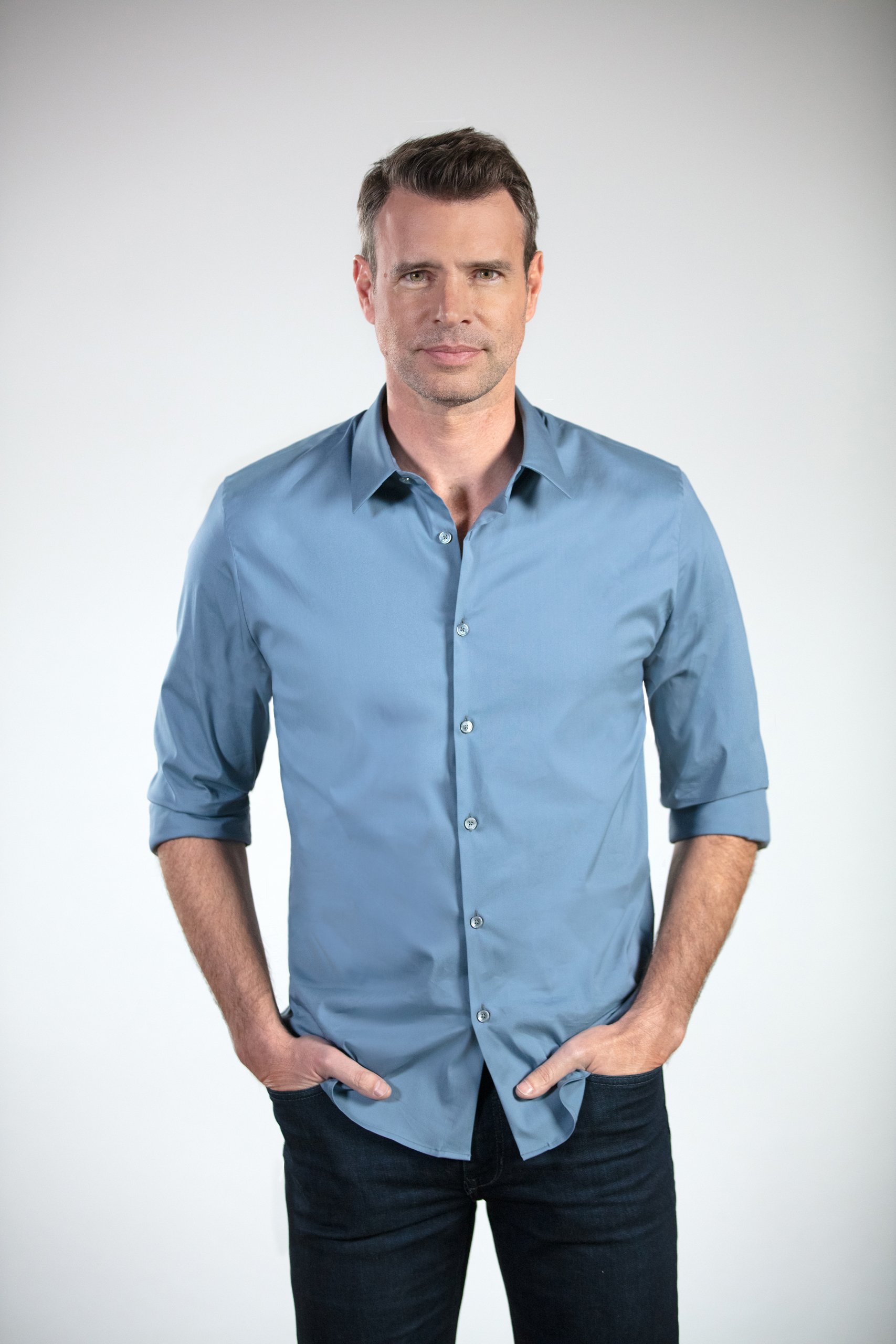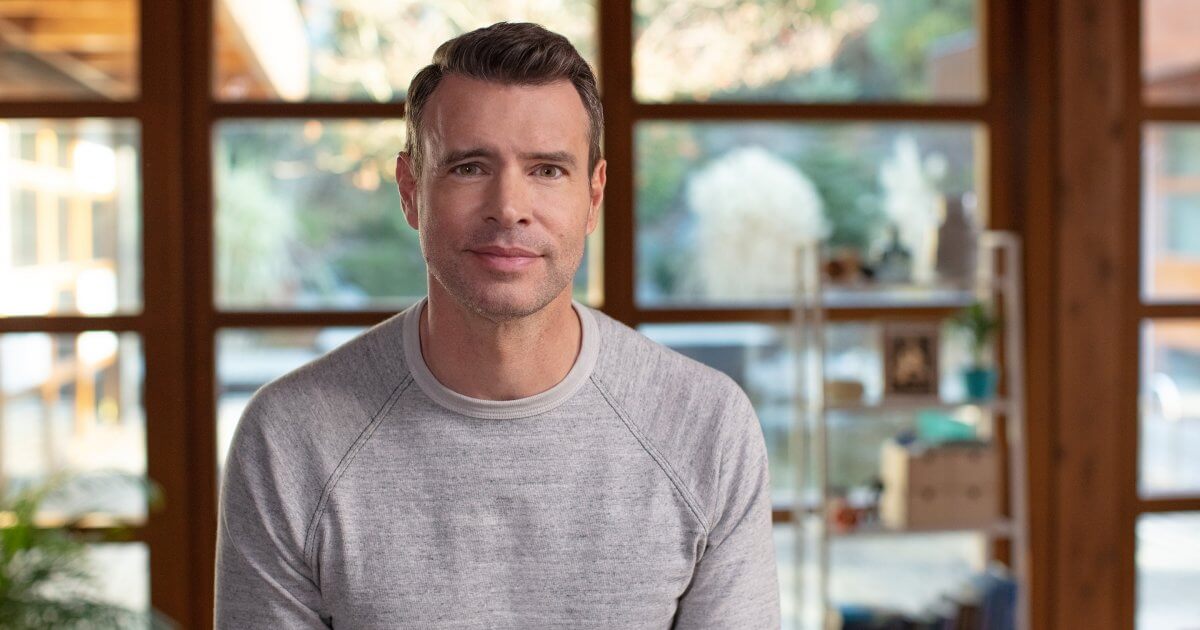Scott Foley's Ovarian Cancer Advocacy
- Scotty Foley was 11 when his mom was diagnosed with cancer.
- Foley has partnered with Not on My Watch, a movement that focuses on empowering women with advanced ovarian cancer.
- His mom’s four-year treatment path included a hysterectomy, chemotherapy, and radiation therapy.
“Dealing with loss at a young age, and dealing with someone who’s sick all the time, that really turned me into someone who built the resilience in me that I walk with today,” Foley tells SurvivorNet. “I know that just by dealing with what I dealt with as a teenager…there is nothing that anybody can throw at me; bring it on, 2020. There’s nothing I can’t handledealing with kids during a pandemic or sick friends or loss of work or whatever it is, I have seen worse. And you cannot take that away from me.”
Not on My Watch Movement
Read MoreHe says his interest in being part of Not on My Watch started with information he heard about maintenance therapies. He says, “As I’ve come to learn [these therapies] can really benefit women who are dealing with an ovarian cancer diagnosis. They can benefit them in delaying the time in between treatments and extending that period between recurrences.” Foley reflects on how important this issue is to him, “As someone who lost my mom, to have more time [with her] would have been paramount it would have been everything.”
Related: 'Faith, Family, and Friends' Helped Beverly Reeves Get Through Ovarian Cancer Treatment
Foley tells us about his experience watching his mom go through ovarian cancer treatment, what it was like to be a caregiver, and how his mom’s passing and memory has influenced him to this day.

Being a Caretaker
Foley and his family lived in St. Louis, Missouri, when his mom was diagnosed. Being so young, Foley says, meant often it was hard to take it all in. “At that age, I was not aware of the severity of it aside from, you know, sort of general awareness of a cancer diagnosis. She struggled through treatments, both in town and out of town, for about four years before succumbing to the disease.”
Related: Ovarian Cancer: The Cancer That Whispers
As the eldest of three, Foley says much of the responsibility came down to him. “My dad had to work, put food on the table….a lot of the day-to-day caregiving sort of fell on my shoulders, between helping her with her medications and making sure that the house is taken care of.” And that’s an awful lot for a boy to have to manage at such a young age.
His Mom’s Ovarian Cancer Treatment
Foley’s mom was diagnosed fairly early on, he says. “We had a vacation planned a few weeks out and the doctor wanted her to come back for some more tests. [My parents] thought they could put it off until after the vacation. By the time we got back from vacation, her cancer had spread.”
Related: Minimally Invasive Surgery for Ovarian Cancer
Foley says they then put his mom on high doses of chemotherapy and radiation treatments. She also had a full hysterectomy within the first three months of being diagnosed. “There was a period, after that first round where they thought they got it all…we waited and thought everything was okay.”
Related: How to Protect Yourself From Infections During Chemotherapy Treatment for Ovarian Cancer
They thought everything was okay, but that wasn’t the case his mom’s cancer had returned. “She seemed to be fine. And she went back a year later and the cancer had metastasized. So she went back for another round of chemotherapy and radiation. I think she had something like dozens and dozens of rounds of radiation and chemotherapy, and they just weren’t working.”
Should You Get Chemotherapy Before Surgery for Ovarian Cancer?
How Cancer Transformed His Family
“As a kid, you don’t really think too much about it,” says Foley of her diagnosis. “I think looking back it was not just a transformative period for my familyI think had it not happened, my family would be a lot closer, if I’m being honest with you. And I don’t think through the fault of anyone.”
When you deal with the loss of a mother to children at a young age, when you deal with the loss of a wife to a husband…there's a lot of things that happen to a family. I don't know if we've ever fully recovered from it.
Foley says the treatments and illness took a toll on his family. “When you deal with any illness, like ovarian cancer, then you deal with the repercussions of treatments like radiation and chemotherapy. When you deal with the loss of a mother to children at a young age, when you deal with the loss of a wife to a husband…there’s a lot of things that happen to a family. I don’t know if we’ve ever fully recovered from it.”
Moments of Joy Through Treatment
Foley laughs as he remembers one memory from his mom’s treatment and her resulting hair loss from chemo. “It was 1984 and I went to summer camp in Wisconsin for a while. And when she came to pick us up at summer camp, she had lost all her hair and she didn’t have a wig yet I’m actually sitting here looking at a picture of her now at summer camp you know [it was] 10, 11, 12, 13-year-olds in summer camp, all boys.”
His fellow campers took note of his mom’s bald head; “I remember there being sort of a bunch of whispers about [her baldness]. And my mom stopped and said, ‘who wants to touch my head?’ I think of those 50 and 60 kids, there was not one boy who didn’t come over and rub her head. It was such a great moment you know, embrace it, and that sounds strange with cancer. It was a real teaching moment, a sort of life moment that I will never forget.
How The Loss Affected Him
Foley was 15 when he lost his mom, and he says it still affects him. “I am 48 years old. Now there’s not a day that goes by that I don’t think not just about my mom but about what she would think of my life now, how she would’ve loved my children, and about the influence she would have over my life.”
The loss has impacted him significantly. “I think that it’s a big part of who I am. I think my mom passing made me stronger to a certain degree. I think losing my mom at a young age and dealing with her illness for as long as we did, has, to certain degree, shaped me into the man that I am today better or worse.
How It Changed Him As a Parent
Foley says that losing a parent so young has made him extra-aware of his own mortality, and wanting to be cautious so he can be alive and present for his own kids. “I’m very careful…I’m not a fast driver and that sounds like such a simple thing, but I’m aware that I have a family at home, you know, and I try to be with them as often as possible and to make the time that I spend with them so important because I’m aware of how delicate life is.”
Apart from wanting to be cautious, Foley’s mom’s passing is still felt in other ways, too. When asked what he misses most about her, he teared up; “saying ‘everything’ is a “cheap way out,” Foley says. “That’s why I’m not going to say that, but I missed that female input. I think that point of view that we didn’t have growing up that my dad so genuinely tried to give us. I miss her point of view. I miss her perspective. I don’t know if there’s anything more important than female influence in the life of a young boy.”
Learn more about SurvivorNet's rigorous medical review process.


